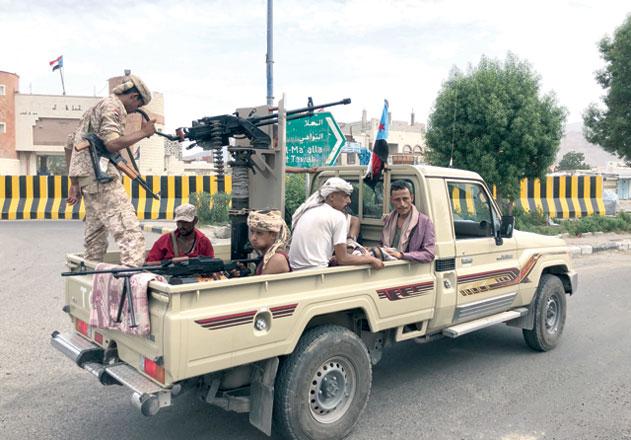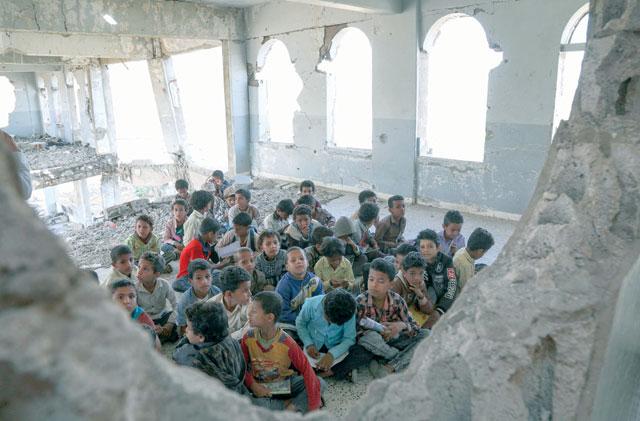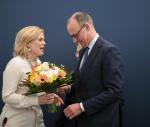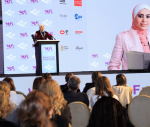You are here
UAE rejects support claims for separatist seizure of Yemen's Aden
By AFP - Aug 21,2019 - Last updated at Aug 21,2019
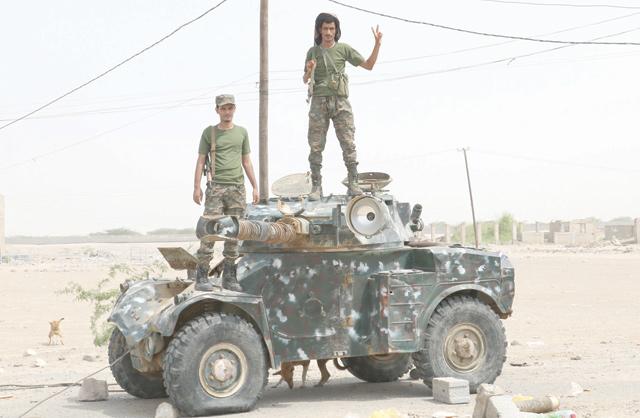
Fighters with the UAE-trained Security Belt forces loyal to the pro-independence Southern Transitional Council stand atop a military vehicle near the south-central coastal city of Zinjibar in south-central Yemen, in the Abyan Governorate, on Wednesday (AFP photo)
ABU DHABI — The UAE on Wednesday rejected accusations it supported Yemeni separatists in their seizure of interim capital Aden, as the government refused talks with secessionists until they fully withdraw.
"We regret hearing today allegations directed against the UAE regarding developments in Aden, which we categorically reject," the UAE's deputy permanent representative to the United Nations, Saud Al Shamsi, wrote on Twitter.
The UAE, a key partner in the Saudi-led military coalition backing the government against northern-based Houthi rebels, "is exerting all efforts to de-escalate the situation in Yemen", he added.
The Security Belt forces, dominated by pro-independence Southern Transitional Council (STC) fighters, ousted loyalists from the port city earlier this month.
The clashes in the capital of formerly independent South Yemen left around 40 people dead, according to the UN.
Separatist forces withdrew from a number of state institutions under pressure from the Saudi-led coalition, but kept key military positions.
Tensions escalated on Tuesday as STC fighters drove government troops out of two military camps along the coast from Aden.
STC head Aidarus Al Zubaidi arrived in the Saudi city of Jeddah on Tuesday night at the invitation of the Saudi foreign ministry, for talks to resolve the standoff.
But Yemen's Deputy Foreign Minister Mohammad Al Hadhrami said on Twitter on Wednesday that the government "will not take part in discussions with the [STC]... unless it withdraws from positions it has seized" and hands over all the weapons it captured from government troops.
South Yemen was an independent state from 1967 until it merged with the north in 1990.
Four years later, an armed secession bid ended in occupation by northern forces, giving rise to resentments which persist to this day.
The Yemeni government took Aden as its de facto capital after losing Sanaa to the Houthis in 2014 — a takeover which sparked a Saudi-led intervention the following year.
The fighting has since killed tens of thousands of people and pushed the country to the brink of famine.
The latest spike in tensions between separatists and pro-government forces constrains their cooperation against the Iran-aligned Houthis.
The UN's Yemen envoy Martin Griffiths warned on Tuesday that the war-torn country faced re-partition in the absence of an urgent deal to end decades of conflict.
Griffiths headed to the Yemeni capital Sanaa on Wednesday to meet with Houthi rebel officials, according to a UN source.
Yemen's conflict has sparked what the UN labels the world's worst humanitarian crisis.
Related Articles
ADEN — Yemen government forces reclaimed the interim capital Aden and its presidential palace on Wednesday, a minister said, pushing back se
RIYADH — Yemen's southern separatists have struck a power-sharing deal with the internationally-recognised government aimed at ending a conf
DUBAI — Yemen's internationally recognised government on Wednesday ruled out talks with separatists who have seized key parts of the south,


